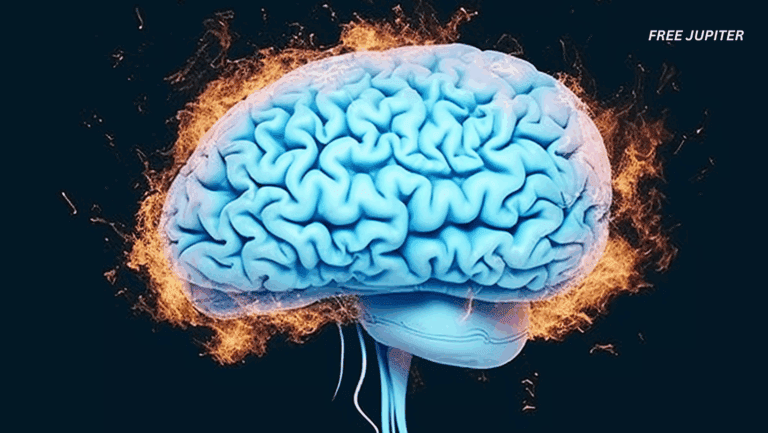For years, Parkinson’s disease has been widely viewed as a neurological condition that starts in the brain and spreads outward. But a bold new study is flipping that narrative. What if the brain isn’t the first place Parkinson’s shows up? What if the real troublemaker is… your kidneys?
Yes, your kidneys—the two bean-shaped organs quietly doing their job behind the scenes, filtering your blood and balancing fluids—may be more involved in brain health than we ever imagined. And this unexpected discovery could dramatically reshape how we understand, diagnose, and treat Parkinson’s disease.
A Quick Crash Course: What Is Parkinson’s?
Before diving into kidneys and proteins, let’s take a step back.
Parkinson’s disease is a progressive disorder that affects movement, coordination, and often mood or thinking. It typically shows up in people over 60, though younger cases aren’t unheard of. Symptoms range from hand tremors and muscle stiffness to difficulty walking and changes in speech or facial expression.
The condition is linked to the gradual death of certain nerve cells in the brain—particularly those that produce dopamine, a chemical that helps control movement. But scientists have long puzzled over why these cells die and what triggers the process in the first place.
One of the biggest suspects? A protein called alpha-synuclein.
Meet the Protein at the Center of the Mystery
Alpha-synuclein (often shortened to α-Syn) is a protein that naturally occurs in the brain and elsewhere in the body. It plays a role in how nerve cells communicate, but in people with Parkinson’s, this protein starts to fold the wrong way—literally. These misfolded proteins clump together, forming sticky clusters known as Lewy bodies that clog up brain cells and disrupt their normal function.
For years, the working theory was that these toxic clumps start forming in the brain, slowly spreading from cell to cell like a biological chain reaction.
But what if that’s not how it starts at all?
Read more: Scientists Successfully Create Healthy Fertile Mice Using Two Male Parents
The Game-Changing Study from Wuhan University
Researchers from Wuhan University in China decided to look beyond the brain. They studied both human tissue samples and genetically engineered mice, trying to understand whether α-Syn might be doing something suspicious in other parts of the body.
What they found was astonishing: in almost every person diagnosed with Parkinson’s or Lewy body dementia, there were clumps of misfolded α-Syn not just in the brain—but in the kidneys.
Even more surprising, similar protein clumps were found in people with chronic kidney disease, even if they had no signs of Parkinson’s or any neurological condition at all.
This wasn’t just a fluke. It hinted at a potentially huge shift in thinking.
Mice Experiments Reveal a Strange Journey
To get clearer answers, the scientists turned to lab mice.
They injected the misfolded α-Syn protein into the mice and tracked where it went. In mice with healthy kidneys, the organs did what kidneys do best: filtered out the junk. The proteins were handled and cleared without much drama.
But in mice with damaged kidneys, something strange happened.
The protein wasn’t removed as it should have been. Instead, it managed to travel up the neural highway—specifically, the vagus nerve, a long communication line that runs between the brain and various internal organs, including the kidneys. From there, the protein reached the brain and started wreaking havoc.
Here’s the kicker: when researchers severed the connection between the brain and kidneys in these mice, the misfolded proteins stayed put. They couldn’t reach the brain anymore. This was strong evidence that the brain might not be the starting point after all.
Instead, the disease might begin in the kidneys (or other peripheral organs) and only reach the brain later, when it’s already harder to treat.
Read more: The Bacteria In Your Gut May Cause Depression, Not The Brain, Claims New Study
The “Bottom-Up” Theory of Parkinson’s
This idea isn’t totally new, but until now it hadn’t gained much traction. Some researchers had proposed a “body-first” model of Parkinson’s, where the disease originates in the gut or other organs before making its way to the brain.
This study gives that theory a serious boost—and brings the kidneys into the spotlight.
It may explain why some people show non-motor symptoms like sleep disturbances, constipation, or loss of smell years before any tremors begin. These signs were often dismissed as unrelated, but they might actually be early warning bells—if you know where to look.
Why This Matters: Hope for Earlier Detection and Better Treatment
Right now, Parkinson’s is usually diagnosed after brain symptoms appear—when significant damage has already been done. Treatments mostly focus on managing symptoms, not stopping the disease itself.
But if we could detect misfolded proteins in the kidneys or other organs before they reach the brain, we might have a chance to intervene early.
Imagine a routine kidney screening catching the early signs of Parkinson’s—years before it would have shown up on a neurological test. Or picture a treatment that stops misfolded α-Syn proteins in their tracks, keeping them from ever reaching the brain at all.
That’s the kind of future this research opens the door to.
Cautious Optimism: Science Still Needs to Catch Up
As exciting as these findings are, it’s important to note: this is still early-stage research.
The study was published in Nature Neuroscience, a reputable journal, and the results are promising. But we’re not at the point where doctors are diagnosing Parkinson’s through urine tests or prescribing kidney-boosting pills to prevent brain disease.
More studies will be needed—especially those involving larger groups of people, diverse populations, and long-term follow-ups—to confirm the connection between kidney health and Parkinson’s.
But even so, the implications are huge.
Are the Kidneys the Body’s Unsung Heroes?
It turns out, your kidneys might be doing more than just filtering toxins and balancing fluids. They might also be gatekeepers, stopping harmful proteins from reaching your brain. And when they fail, the consequences could ripple throughout your nervous system.
This shifts the spotlight away from the brain as the sole battlefield in Parkinson’s and invites researchers to think more holistically about how the disease develops.
Read more:Groundbreaking Nanoparticle Technology Reverses Parkinson’s Disease in Stunning Study
The Bigger Picture: A Whole-Body Approach to Brain Health
The idea that a neurological disease could begin outside the brain isn’t just a twist—it’s part of a broader trend in science. Increasingly, researchers are recognizing the interconnectedness of the body. The brain doesn’t work in isolation. It talks to the gut, the heart, the kidneys, and more. And what happens in those places can affect how the brain ages and functions.
This new study adds one more piece to that complex puzzle. It reminds us that our brains might not be as self-contained as we once thought. Sometimes, the road to brain health might start with organs we never even considered.
So, the next time you think about Parkinson’s, don’t just think brain. Think kidneys. Think connections. And most of all, think possibility.










